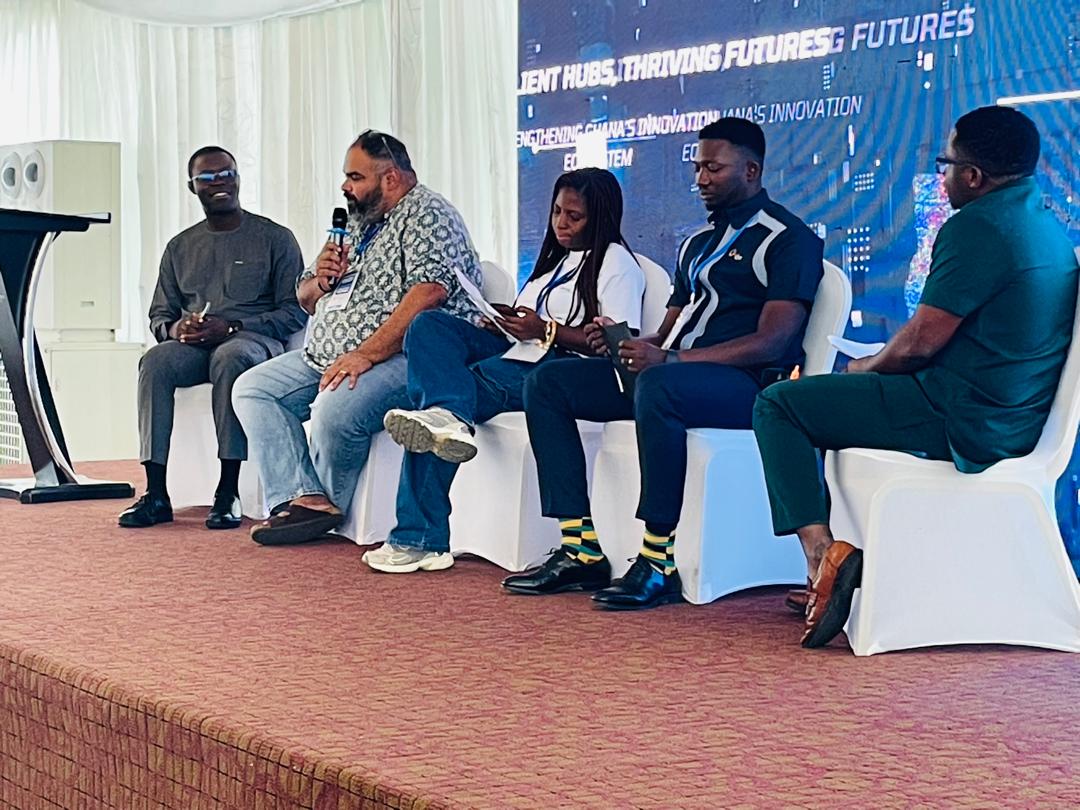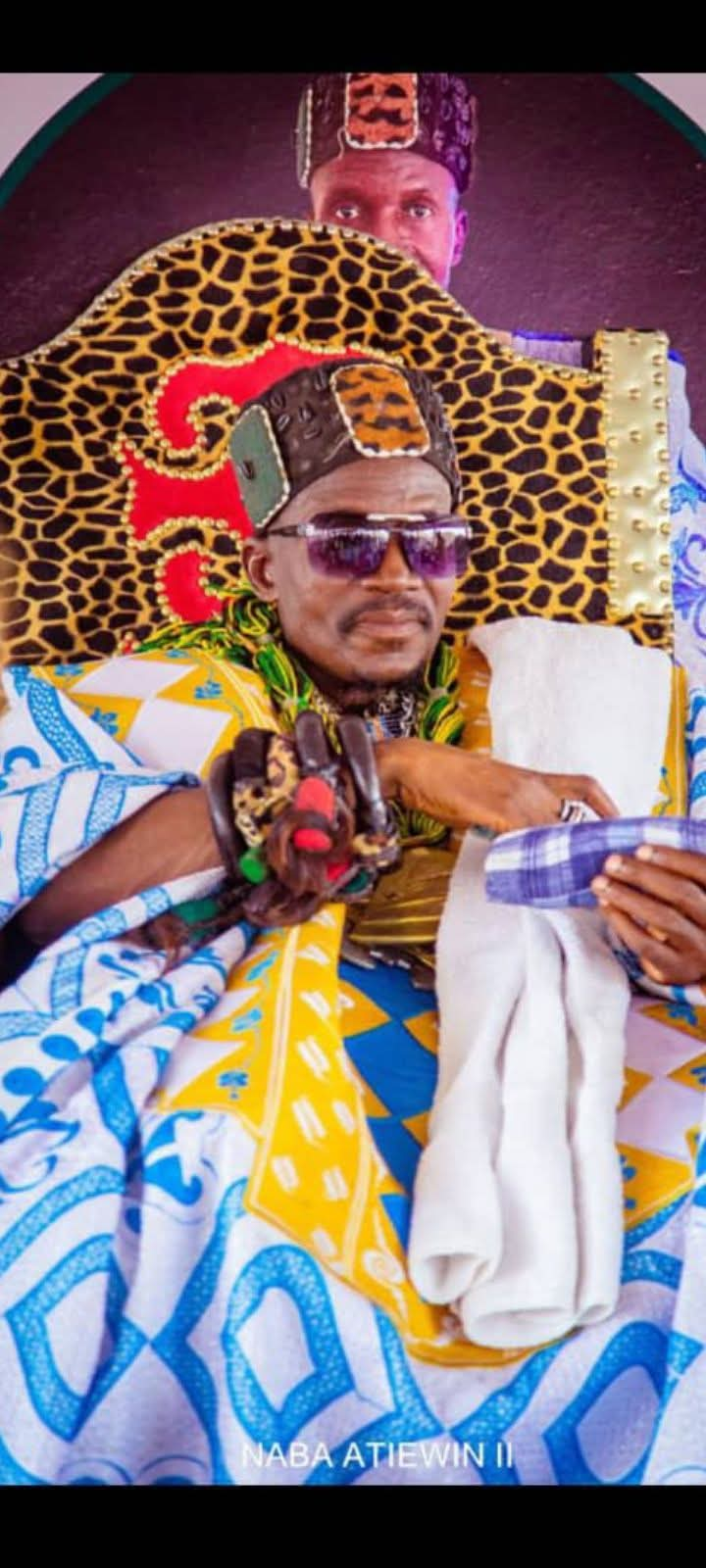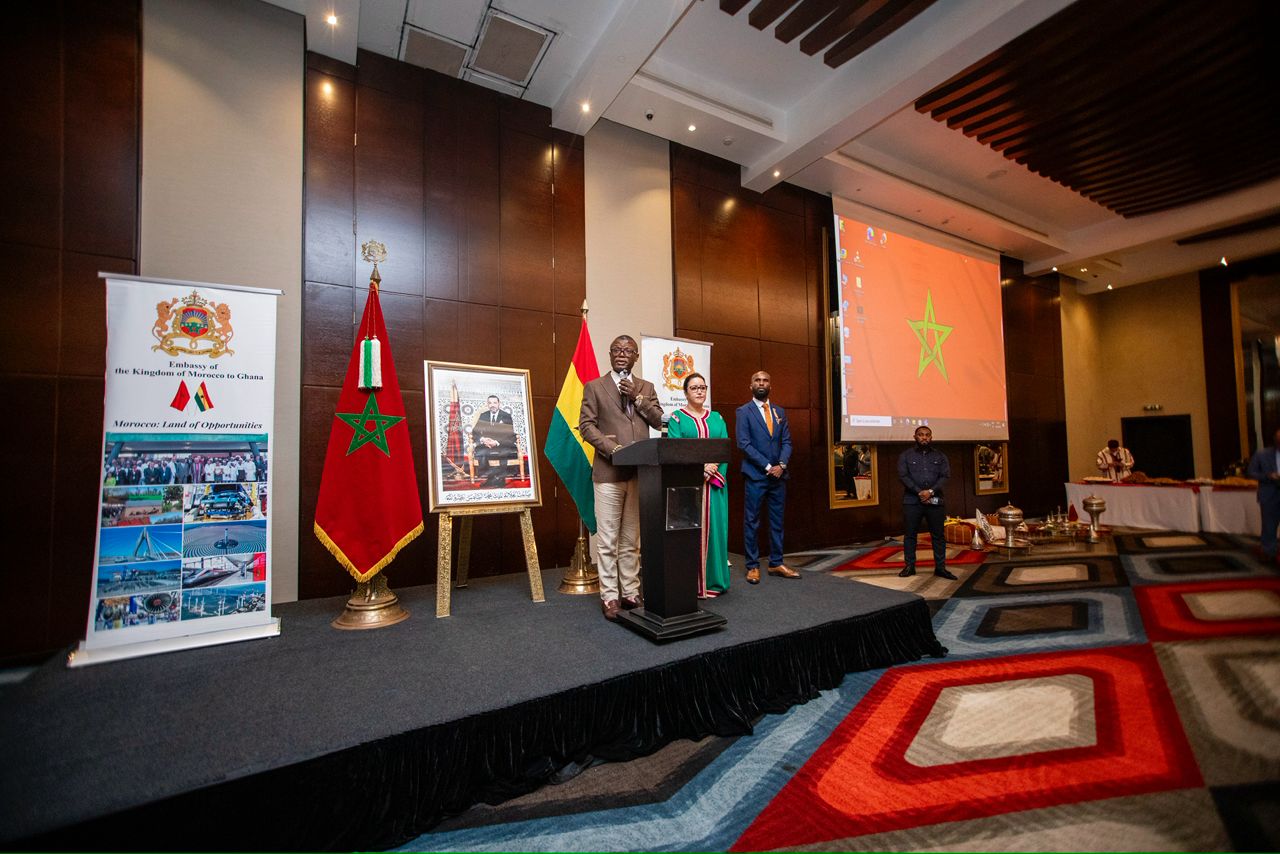The Ghana Hubs Network has held its 2025 Annual Gathering of Hubs in Accra to strengthen collaboration and innovation across Ghana’s entrepreneurship landscape.
Held under the theme “Resilient Hubs, Thriving Futures: Strengthening Ghana’s Innovation Ecosystem,” the two-day event brought together hub leaders, entrepreneurs, development partners, and policymakers to explore ways to accelerate inclusive digital transformation and job creation.

Chairperson of the Ghana Hubs Network, Yaw Adu-Gyamfi, highlighted the growing impact of hubs nationwide, noting that over 100 active hubs, including 80 under the Ghana Hubs Network, have trained 12,000 youth and women and supported more than 6,000 startups and small businesses.
In 2024 alone, the network mobilised 4 million dollars in funding support from partners such as the National Entrepreneurship and Innovation Programme, GIZ, Mastercard Foundation, and Ashesi University.
He stressed the need for a supportive policy environment and called for the swift passage of the Startup and Innovation Bill. He also urged academia, government, and the private sector to deepen their commitment to youth innovation and entrepreneurship.
A major highlight of the event was the launch of a Gender-Responsive Toolkit developed with GIZ and GFA Consulting Group to promote the inclusion of women and persons with disabilities in the innovation space.
Yaw Adu-Gyamfi emphasised that Ghana’s innovation future must be built beyond Accra and driven by young innovators and changemakers across all regions.

The Deputy Chief Executive Officer of the National Entrepreneurship and Innovation Programme, Joan Selasie Ahiawordor, reaffirmed NEIP’s commitment to strengthening innovation hubs across the country to accelerate youth entrepreneurship and inclusive economic growth.
Speaking on behalf of the NEIP CEO, she described the event as a vital platform where impact is created, ideas are shaped, and partnerships are built to drive the future of Ghana’s innovation ecosystem.
She noted that entrepreneurship is one of the most powerful tools to reduce unemployment, foster innovation, and drive inclusive growth. NEIP remains committed to three key focus areas: building the capacity of entrepreneurs through training and mentorship, improving access to funding and markets, and strengthening the broader entrepreneurship ecosystem through strategic partnerships.
Highlighting NEIP’s flagship initiatives, she mentioned the “Adwumawura Programme” a bold intervention aimed at creating at least 10,000 businesses annually, particularly targeting women, persons with disabilities, and underserved communities.
She explained that the Adwumawura Programme is not just about handing out capital, but about providing a full support system including business development services, mentorship, training, and market access to ensure sustainability.
Madam Ahiawordor emphasised that NEIP views innovation hubs not merely as external actors but as foundational partners in the entrepreneurship journey. Hubs are where many entrepreneurs take their first steps. You are the first responders and front-liners of building resilience, she said.
She also announced that NEIP is deepening collaboration with hubs through co-hosted incubator and accelerator programmes, direct financial and technical support, and two-way policy feedback systems.
To the gathered entrepreneurs and ecosystem players, she assured, NEIP is here for you—whether you are just starting or scaling. We believe in your potential and are investing in your future.
She concluded with a call for greater collaboration, urging all stakeholders to align efforts and deliver tangible results that will shape Ghana’s future through resilient innovation ecosystems.

GIZ Reaffirms Commitment to Ghana Hubs Network, Urges Stronger Collaboration for Digital Innovation
Emmanuel Mumuni, Programme Component Manager at GIZ, reaffirmed the German development agency’s strong commitment to the Ghana Hubs Network and emphasised the critical role of innovation hubs in advancing sustainable economic development.
Speaking at the Annual Gathering of Hubs in Accra, Mr Mumuni highlighted the steady progress of Ghana’s innovation ecosystem, noting GIZ’s long-standing support since the network’s inception.
Years ago, hubs weren’t even part of the mainstream conversation. Today, it’s hard to find any SME in Ghana that hasn’t interfaced with a hub whether through training, funding, capacity building, or mentorship, he said.
Mr Mumuni stressed that digital transformation is a key pillar of GIZ’s development agenda in Ghana, particularly in job creation, entrepreneurship, and improving the macroeconomic outlook. We believe digital innovation is a major driver of sustainable economic growth, he added.
He called on members of the Ghana Hubs Network to strengthen institutional capacity, align strategies, and speak with a unified voice to influence national policy, particularly in areas like cybersecurity, digital inclusion, and the pending Ghana Startup and Innovation Bill.
As development partners, we prefer working with structured, united groups. The Ghana Hubs Network presents a great opportunity to collaborate on bigger, aligned projects that can make real impact, he noted.
Mr Mumuni also praised the leadership of the Network, particularly its Executive Director, Yaw Adu-Gyamfi, and the board for their relentless push toward a larger vision. He urged all hubs to actively contribute, stressing that the success of the network depends on every member.

Florence Toffa Calls for Africa’s Active Participation in AI Development
The Director of Mobile Web Ghana, Florence Toffa, called on African countries to move beyond being passive consumers of emerging technologies and become active participants in the development and innovation of artificial intelligence.
Speaking during a panel discussion on private sector participation in the innovation ecosystem, she emphasised the importance of inclusive participation, training, and innovation in AI to avoid being left behind in the global digital transformation.
When new technologies arrive in Africa, we often sit back and observe while others take the lead, she said. But this time, as part of the responsible AI movement, we are determined to act differently. We must not remain mere consumers—we must become creators and innovators.
She highlighted the strides Ghana has made in this space, including the launch of the country’s national AI strategy. According to her, innovation hubs across the country play a vital role in ensuring communities are not excluded from the AI revolution.
There’s a lot we can do beyond using tools like ChatGPT to charge phones or watch television, she stated. We must train people to create, build labs, and develop locally relevant solutions using AI. Economic empowerment is coming through this industry, and we must claim our share.
She also shared her experience with international partners who have shown interest in helping local organisations access funding.
One CEO who visited us was impressed with how we run our training and projects. He told me, Florence, your biggest gap is not in execution but in sourcing funding. Let us help you. They even offered to write funding proposals for us in French without taking any commission.
Ms Toffa urged other hub leaders and entrepreneurs to be open to collaboration and accept support when needed. Sometimes, the biggest barrier is simply asking for help. If we identify our gaps and build strategic partnerships, we can overcome them.
She concluded by calling on innovation hubs to unite and drive inclusive digital transformation in Ghana and across the continent.
GFA Consulting Group Strengthens Innovation Ecosystem by Partnering with Local Hubs
Digital Innovation and Partnership Manager at GFA Consulting Group, Alhassan Muniru, emphasised the critical role local innovation hubs play in fostering grassroots development in Ghana’s startup ecosystem.
Mr Muniru explained that GFA Consulting Group, a Germany-based consulting firm, works extensively with development partners to implement impact-driven programs.
In Ghana, the organisation is currently partnering with over 15 hubs across the country, from Accra to Tamale, supporting young innovators and early-stage startups.
For us, the private sector is the engine of growth, he said. If we want to make a lasting impact at the grassroots level, we must work with the real actors on the ground hubs and young innovators.
He noted that access to funding remains a significant barrier for smaller organisations and startups. GFA helps bridge this gap by facilitating funding access through strategic partnerships and capacity-building initiatives.
Most small organisations don’t have direct access to funding, he explained. By working closely with them, we not only help channel resources where they are needed most but also contribute to strengthening their internal capacity and long-term sustainability.
He added that this collaborative approach benefits both GFA and its partners, as the exchange of knowledge and skills creates a multiplier effect that enhances the broader innovation ecosystem.

Private Sector’s Active Engagement Crucial to Startup Growth
Ashwin Ravichandran, Portfolio and Programs Advisor at MEST Africa, underscored the importance of genuine private sector involvement in strengthening Ghana’s innovation ecosystem, citing it as critical to the growth and success of local startups.
Mr Ravichandran highlighted notable collaborations with both international development partners such as GIZ, UNICEF, UNDP, and the Mastercard Foundation, as well as key private sector players including Absa Bank, Fidelity Bank, MTN, Telecel, and Vodafone.
We have enjoyed meaningful partnerships with various organisations, but the real game-changer is when the private sector does more than just fund initiatives—they engage directly and provide access to their internal resources and networks, he explained.
He recalled MTN Ghana’s earlier support for startup hackathons, noting how the presence and participation of MTN executives during those events significantly improved the company’s relationship with the startup community. Their involvement went beyond funding—it was strategic and intentional. That level of engagement changed how MTN was perceived in the ecosystem, he added.
Mr Ravichandran also cited MedPharma as a notable success story. The startup, which emerged from ecosystem support programs, is now set to launch a competitively priced health insurance scheme via MTN Mobile Money, offering innovative health solutions tailored for the Ghanaian market.
Further highlighting the impact of collaboration, he pointed to organisations such as the Kosmos Innovation Center, describing it as one of the more robust ecosystem hubs in Ghana. Kosmos Innovation Center has done a phenomenal job of not just connecting with hubs, but also building strong ties with universities across the country. That kind of stakeholder integration is what drives sustainable innovation, he said.
Source: Isaac Kofi Dzokpo
Share Us



